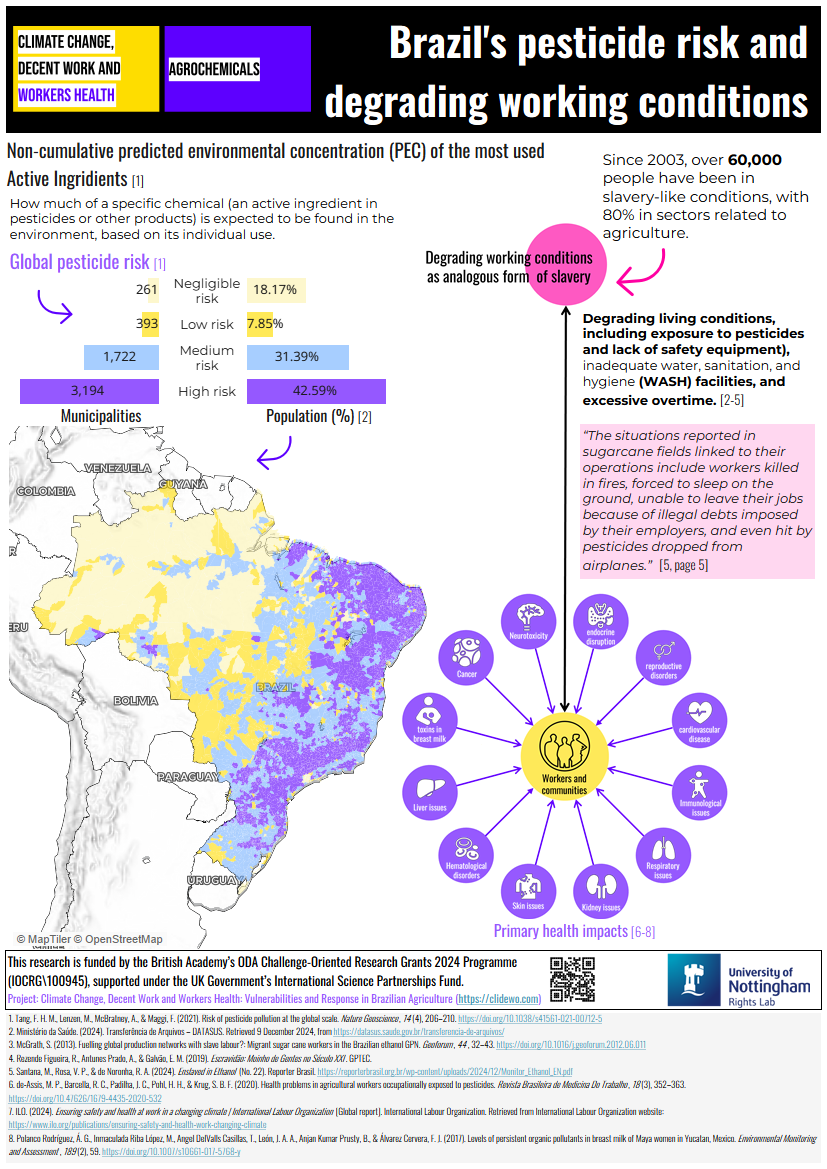Risco de agrotóxicos e condições de trabalho degradantes no Brasil
Enquanto continuamos a extrair e analisar vários conjuntos de dados, estamos animados em compartilhar o primeiro infográfico da nossa nova série que explora a interseção entre mudanças climáticas, trabalho decente e saúde dos trabalhadores.
40% da população brasileira reside em áreas com alto risco de pesticidas, onde trabalhadores agrícolas e comunidades rurais estão mais significativamente expostos, tendo contato frequente e direto com agrotóxicos.
Em condições de trabalho degradantes — definidas como análogas ao trabalho forçado pelo artigo 149 do Código Penal Brasileiro — os riscos de intoxicação por agrotóxicos e doenças crônicas aumentam significativamente. As inspeções trabalhistas revelaram violações, incluindo infraestrutura inadequada de água, saneamento e higiene (WASH), condições de vida degradantes, horas extras excessivas e ilegais e deduções arbitrárias de salários, como os incidentes mais frequentes.
Esses fatores violam os direitos dos trabalhadores e aumentam as chances de intoxicação aguda e doenças crônicas, pois geralmente prejudicam o acesso a instalações adequadas de descontaminação e medidas de segurança. Um exemplo claro é destacado no relatório investigativo Escravizados do Etanol, que ilustra como os riscos de envenenamento pelo uso de agrotóxicos e pela exploração laboral estão intimamente interligados.
Em breve, disponibilizaremos uma versão interativa e desvendaremos essas conexões críticas entre mudanças climáticas, trabalho decente e saúde dos trabalhadores.
